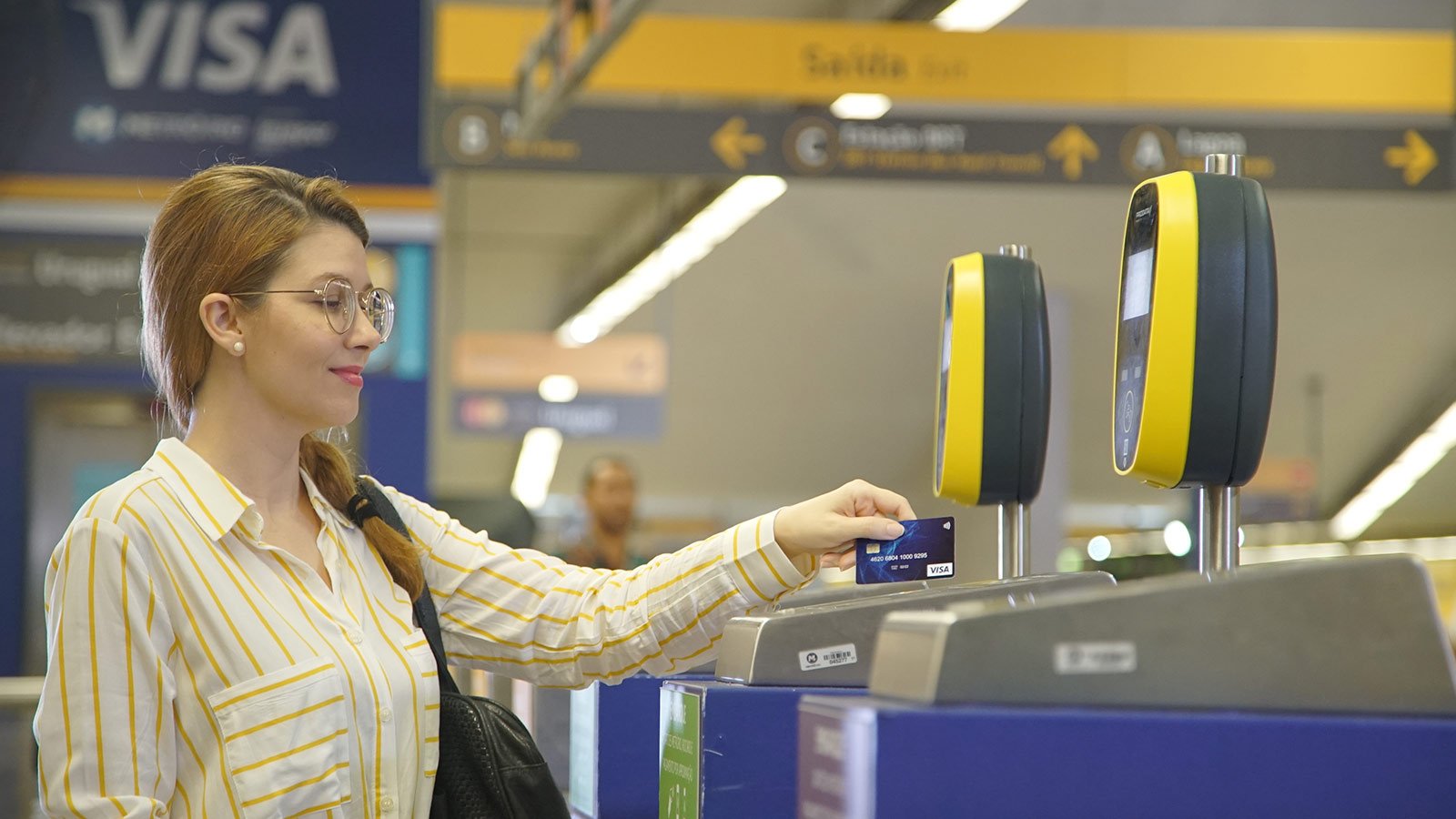Global Resilient Cities Network and Visa Team up to propel resilience and digital economies for cities across Latin America & the Caribbean

Abu Dhabi, United Arab Emirates and Miami, FL, USA (February 11, 2020) – Visa and GRCN announced an agreement today at the 10th World Urban Forum (WUF) to collaborate on a program to help cities deploy technologies that can build and further digital economies across the 17 Latin American and Caribbean cities that are part of the Global Resilient Cities Network. GRCN, pioneered by The Rockefeller Foundation, is the evolution of the former 100 Resilient Cities program and aims to help cities become more resilient to the physical, social and economic challenges of the 21st century. The collaborative work between Visa and GRCN will support cities to develop the right digital infrastructure as part of their resilience strategy, with a special focus on urban mobility as a catalyst to accelerate these changes.
“Visa recognizes Latin American and Caribbean cities, governments, transit operators and other players in the urban mobility ecosystem are looking to create efficient, seamless, and sustainable systems to improve the daily journeys of commuters and visitors,” said Eduardo Coello, President of Visa Latin America and the Caribbean. “This agreement with GRCN underscores our commitment to urban mobility and Visa’s role in promoting the best digital payment solutions to tackle pressing issues in cities. Driven by cities’ challenges and enabled by new technological possibilities, fast, easy and secure payments are changing the way we travel, how we move within a city, and the way we shop and work.”
Greenhouse gas emissions from transport are on track to double by 2050. Passenger vehicles account for 70% of those emissions and about 50% of urban air pollution.1 Increasing multi-modal mobility, especially public transit and micro-mobility options, is key to bringing these numbers down.
At the same time, cities are experiencing explosive growth. About 85% of Latin Americans live in cities today, a percentage expected to grow to 90% over the next 30 years 2and travel is becoming more cumbersome. Building efficient, interoperable systems to move around and within urban centers is critical to creating resilient cities, and instituting fast, easy, secure payments based on global standards is one of the best ways to encourage ridership and boost economic sustainability.
Under the agreement, Visa and GRCN will work together to define opportunities for digital economics within GRCN’s network of cities and scale solutions to help cities strengthen their resilience strategies. The program will foster an open and collaborative program among all players: governments, public transit operators, fintechs, universities and others to promote innovation and exchange knowledge through the network. Program activities will include: spearhead research and insight that captures the challenges and opportunities within individual cities; develop a resilience challenge workshop for cities to identify, open and define their hurdles; host end-to-end in-market intelligence field visits to selected cities; create a turn-key playbook for the urban resilient digital economy; and organize an annual Resilient & Digital Cities Forum.
As a global payments leader, Visa is committed to delivering better journeys for travelers and helping cities operate more efficiently and sustainably. Aida Esteban Millat, Head of Smart Cities and Urban Mobility at Visa Latin America and the Caribbean added, “Visa continues to help cities enable new payment technology including tapping to pay with contactless cards and devices, connected car payments, enhancements to current public transit systems and mobility services, all working in collaboration with technology partners to create solutions that improve commuters lives and help cities participate in larger digital economies.”
Visa is engaged in urban mobility projects around the world, and in multiple cities around Latin America and the Caribbean. For instance, Visa recently launched contactless payment systems in all of MetroRio’s 41 stations; a contactless pilot across 12 bus lines and 200 buses with Sao Paulo’s bus operator (SPTrans), with several other projects underway in other cities including Santo Domingo and a few in Mexico.
“Building urban resilience in Latin America and the Caribbean requires looking at a city holistically: understanding the systems that make up the city and the interdependencies and risks they may face,” said Eugene Zapata Garesche, Managing Director for Latin America and the Caribbean at GRCN. “Urban mobility plays an important role in resilience and we are pleased to be collaborating with an experienced partner like Visa where we can both leverage our global capabilities and bring value to scale.”
The Global Resilient Cities Network includes the following 17 cities in Latin America and the Caribbean: Ciudad Juárez, Colima, Metropolitan Guadalajara and Mexico City (Mexico), Santiago de los Caballeros in Dominican Republic, San Juan in Puerto Rico, Panama City, Cali and Medellin in Colombia, Quito in Ecuador, Salvador, Rio de Janeiro and Porto Alegre in Brazil, Montevideo in Uruguay, Metropolitan Santiago in Chile and Santa Fe and Buenos Aires in Argentina.
You may also be interested in

Visa Puts Future of Payments in the Spotlight at eMerge Americas 2018
Join Visa to experience how non-traditional players – like fintechs, startups and developers – are collaborating with traditional ecosystem players to build the future of commerce.

Visa Everywhere Initiative Announces Culqi as the Winner for Latin America and the Caribbean
The startup from Lima, Peru won with an innovative solution that aggregates multiple payment forms making it easier for businesses to accept payments with a single integration.

Visa launches Visa Loyalty Solutions, the first 100% digital loyalty platform in Latin America and the Caribbean
In partnership with novae, Visa Loyalty Solutions has made it easier than ever to earn and redeem points with Visa, enabling consumers to exchange loyalty points anytime, anywhere and from any device.